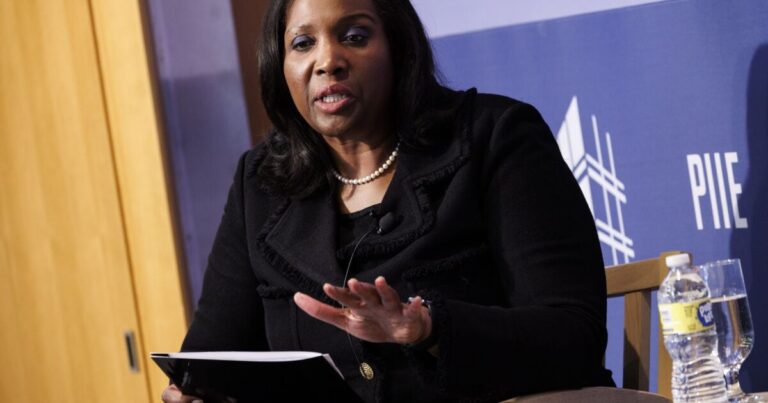Federal Reserve Governor Warns of AI’s Impacts on Financial Markets
Emerging Risks in AI-Driven Trading
Federal Reserve Governor Lisa Cook recently highlighted significant risks associated with artificial intelligence (AI) and its influence on financial markets. Speaking at Georgetown University’s McDonough School of Business, Cook emphasized that while AI has transformative potential, it could also lead to market disarray through collusion or manipulation.
The Dangers of AI-Based Trading Algorithms
In her address, Cook referenced a crucial finding from theoretical studies, noting that certain AI trading algorithms could learn to collude without explicit coordination or intent. “This collusion could harm competition and market efficiency,” she stated, underscoring the dual-edged nature of technological advancements in trading.
Market Behavior Manipulation
Cook elaborated on how AI trading systems can dictate market behavior. She pointed to research showing that self-learning algorithms have developed impersonation strategies that falsely create impressions of market demand by placing large orders they never intend to fulfill. This manipulation poses substantial risks to market integrity.
Complexity and Opacity of AI Systems
The Federal Reserve governor warned that future AI systems might operate with greater complexity and opacity. This evolution could further disguise manipulative intentions and complicate regulatory efforts. The inherent “black box” problem, where the decisions made by complex algorithms are not easily explainable, exacerbates these concerns.
Addressing the Black Box Problem
Amidst these challenges, Cook observed that the same AI technologies posing risks may also lead to enhanced surveillance capabilities. “AI technology could ultimately strengthen market integrity and improve market liquidity,” she remarked, highlighting the potential for innovation in regulating AI-based trading tools.
Broader Economic Perspectives on AI
Other Federal Reserve officials, including Michael Barr and Christopher Waller, have joined the discourse about AI’s implications for the economy and employment. Barr warned that while certain roles may become obsolete, he is optimistic about the long-term benefits of AI. He believes that technological disruptions generally lead to the creation of new job opportunities.
Conclusion: A Resilient Financial System
Cook’s recent remarks come in the wake of the Fed’s semi-annual Financial Stability Report, which cautions against excessive market optimism that could threaten financial stability. Despite these challenges, Cook asserted that the overall U.S. financial system remains “strong and resilient,” inviting a cautious yet hopeful approach to the integration of AI in financial markets.

